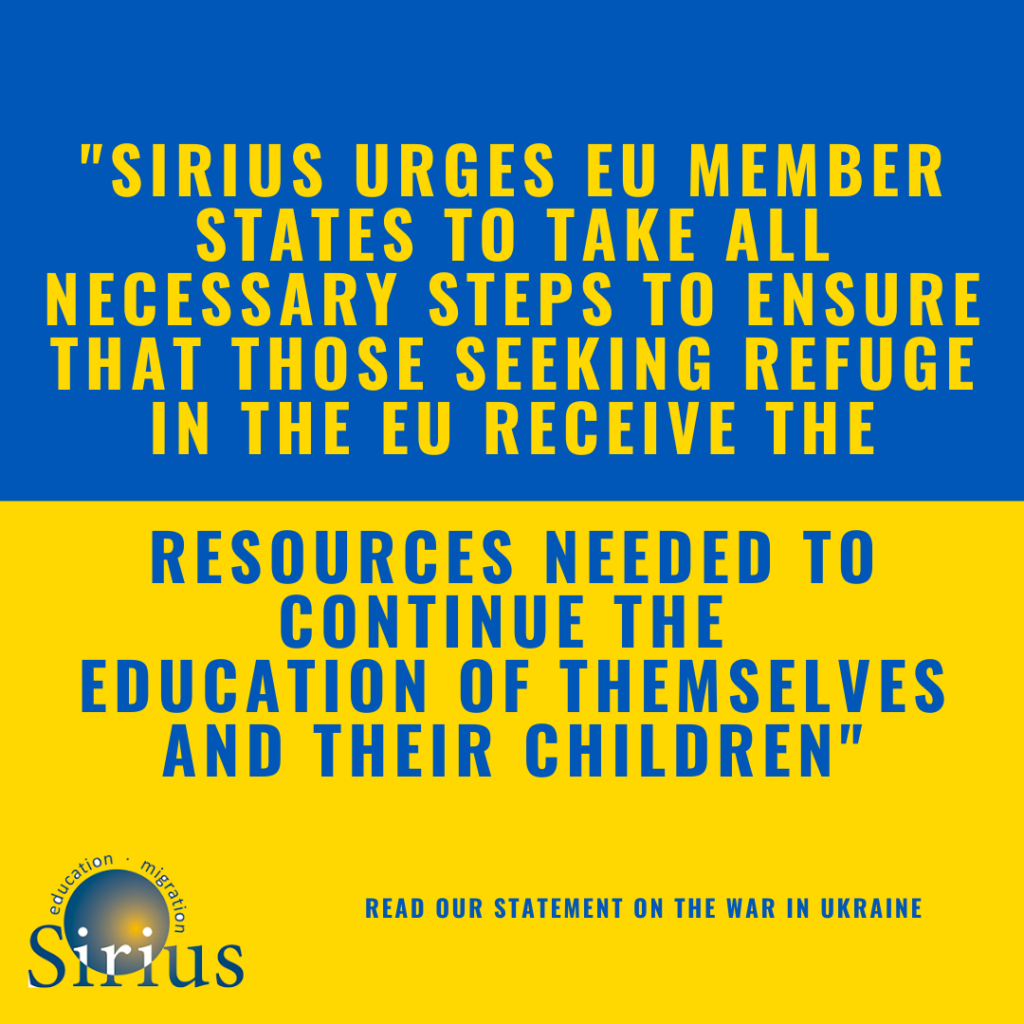It is with great concern that SIRIUS, the Policy Network on Migrant Education, watches events unfold in Ukraine and surrounding countries. Our thoughts are with all those who are fleeing the war, those who have been forced to fight for their freedom, those seeking safety away from their homes and with the citizens of many countries including Russia and Belarus, who put themselves at risk publicly opposing this war.
SIRIUS urges EU member states to take all necessary steps to ensure that those seeking refuge in the EU receive the resources needed to continue the education of themselves and their children. We remind EU member states that European regulations require that children entering a Member State need to be included in education within three months (article 14 (2) Directive 2013/33/EU). Quality inclusive education, in an atmosphere of acceptance and respect, is crucial to offer migrants, refugees and their families hope, a path out of trauma and despair, a sense of self-worth and prospects for a future without oppression and violence.
Most of the displaced persons leaving Ukraine and seeking refuge elsewhere, are crossing into EU countries such as Poland, Romania, Moldova, Slovakia and Hungary. Some are finding their way further into the EU. The 1951 UN Refugee Convention guarantees all refugees the right to education.
However, there are cases of selective discrimination and racism towards refugees crossing borders to certain EU countries where for example, refugees of colour (often students), LGBTI persons, Belarussian nationals fleeing political persecutions, and other groups are refused the entry. We condemn discrimination on any grounds and demand that all people fleeing the conflict area are treated equally and offered the necessary protection.
In addition, we call upon education authorities and schools in all European countries to ensure that empathy andcritical-thinking skills are employed in broaching the topic of this conflict at school in the framework of democratic citizenship and history education. We urge education institutions to ensure that no students, education personnel, or their families become prey to bullying or harassment in this context. We also encourage education authorities and governments of European countries to offer guidance and support materials on ‘how to talk about war’ so that communities do not suffer additional trauma. We highlight that teachers and other education personnel need to be better supported and equipped to meet the diverse needs of migrant students and to promote inclusion, diversity and intercultural dialogue in educational institutions.
Furthermore, we highlight that migrant and refugee teachers can be valuable for European education systems which are struggling with the lack of education personnel prepared for teaching additional students. SIRIUS invites EU member states to ensure the provision of fast track programmes and necessary continuous professional development so that qualified migrant and refugee teachers and other education personnel can work in the education systems of their host countries as quickly as possible.
Finally, given the urgency of the immediate situation, SIRIUS offers support to policymakers and practitioners to implement such actions and connect them with others who are experienced in these areas.


